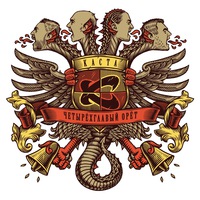
1.При задержке дыхания на глубоком вдохе и выдохе лёгкие могли принять больше СО2 из крови? 2.в
каком случае накопление в крови СО2 шло быстрее ? 3.каким будет характер дыхания после его непроизвольной задержки?глубина-...... ,частота-....... 4 . накопление углекислого газа в крови вызывает усиление дыхания,что позволяет вывести............ из лёгких и обогатить альвеолярный воздух.................. . 0
0
 0
0
Ответы на вопрос
 Внимание! Ответы на вопросы дают живые люди. Они могут содержать ошибочную информацию, заблуждения, а также ответы могут быть сгенерированы нейросетями. Будьте внимательны. Если вы уверены, что ответ неверный, нажмите кнопку "Пожаловаться" под ответом.
Внимание! Ответы на вопросы дают живые люди. Они могут содержать ошибочную информацию, заблуждения, а также ответы могут быть сгенерированы нейросетями. Будьте внимательны. Если вы уверены, что ответ неверный, нажмите кнопку "Пожаловаться" под ответом.

1. При выдохе. 2. При вдохе. 3. Глубина - высокая, частота - низкая. 4. Накопление углекислого газа в крови вызывает усиление дыхания, что позволяет вывести углекислую кислоту из лёгких и обогатить альвеолярный воздух кислородом..
 0
0
 0
0

I will answer in detail.
1. When holding your breath on a deep inhalation and exhalation, the lungs could take more CO2 from the blood? - The lungs could take more CO2 from the blood when holding your breath on a deep inhalation, because the alveolar air has a higher concentration of oxygen and a lower concentration of carbon dioxide than the blood. When holding your breath on a deep exhalation, the lungs could take less CO2 from the blood, because the alveolar air has a lower concentration of oxygen and a higher concentration of carbon dioxide than the blood.
2. In which case would the accumulation of CO2 in the blood be faster? - The accumulation of CO2 in the blood would be faster in the case of holding your breath on a deep exhalation, because the alveolar air has a higher concentration of carbon dioxide than the blood, and the diffusion gradient is reduced. The accumulation of CO2 in the blood would also be faster in the case of increased physical activity, because the metabolic rate and the production of carbon dioxide increase.
3. What would be the character of breathing after its involuntary delay? Depth-......, frequency-....... - The character of breathing after its involuntary delay would be deep and rapid, because the accumulation of carbon dioxide in the blood stimulates the respiratory center in the brainstem, which increases the depth and frequency of breathing to eliminate the excess carbon dioxide from the lungs and enrich the alveolar air with oxygen .
4. The accumulation of carbon dioxide in the blood causes an increase in breathing, which allows to remove............ from the lungs and enrich the alveolar air with.................. . - The accumulation of carbon dioxide in the blood causes an increase in breathing, which allows to remove carbon dioxide from the lungs and enrich the alveolar air with oxygen. This is because the partial pressure of carbon dioxide in the blood is the main factor that regulates the respiratory rate and the ventilation of the lungs. When the partial pressure of carbon dioxide in the blood rises, the respiratory center in the brainstem sends signals to the respiratory muscles to increase the depth and frequency of breathing, which increases the exchange of gases between the alveoli and the capillaries. As a result, the partial pressure of carbon dioxide in the blood decreases, and the partial pressure of oxygen in the blood increases, restoring the normal balance of gases in the body .
 0
0
 0
0
Топ вопросов за вчера в категории Биология
Последние заданные вопросы в категории Биология
-
Математика
-
Литература
-
Алгебра
-
Русский язык
-
Геометрия
-
Английский язык
-
Химия
-
Физика
-
Биология
-
Другие предметы
-
История
-
Обществознание
-
Окружающий мир
-
География
-
Українська мова
-
Информатика
-
Українська література
-
Қазақ тiлi
-
Экономика
-
Музыка
-
Право
-
Беларуская мова
-
Французский язык
-
Немецкий язык
-
МХК
-
ОБЖ
-
Психология
-
Физкультура и спорт
-
Астрономия
-
Кыргыз тили
-
Оʻzbek tili




















